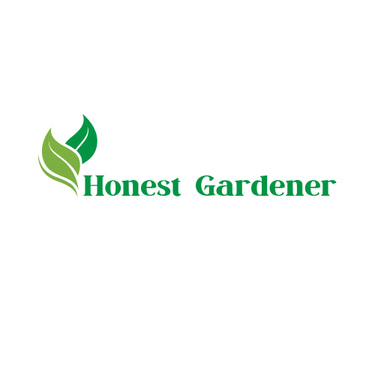Grow smarter with Honest Gardener today!
Organic Compost Starter Kit for Home Gardeners: Your Complete Guide
Discover the best organic compost starter kit for home gardeners. Learn how to compost easily, review top kits, and get tips to build rich soil for vegetables and plants.
GARDENING TOOLS
10/15/20255 min read
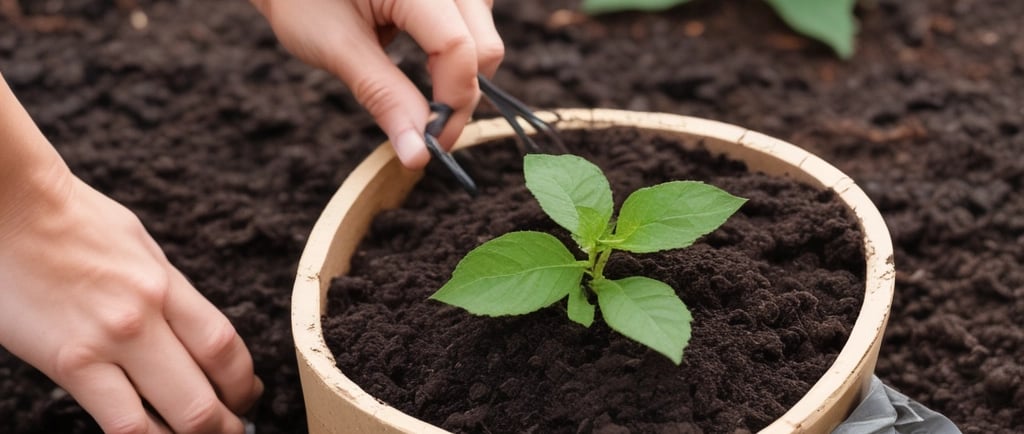

Are you tired of spending a fortune on store-bought soil, ready-mixed potting soil, or fertilizers? For many home gardeners in the U.S., creating rich, nutrient-dense compost is one of the most cost-effective and sustainable moves you can make. That’s why an organic compost starter kit for home gardeners is quickly becoming a must-have tool. Whether you’re cultivating veggies in containers, raised beds, or simply fertilizing houseplants, the right compost boosts soil health, reduces waste, and results in more vigorous growth.
In this article, we’ll explain what compost starter kits are, why they’re especially powerful for home gardeners, how to pick the best one, review top options on Amazon, and show you how to get started—even if you’ve never composted before.
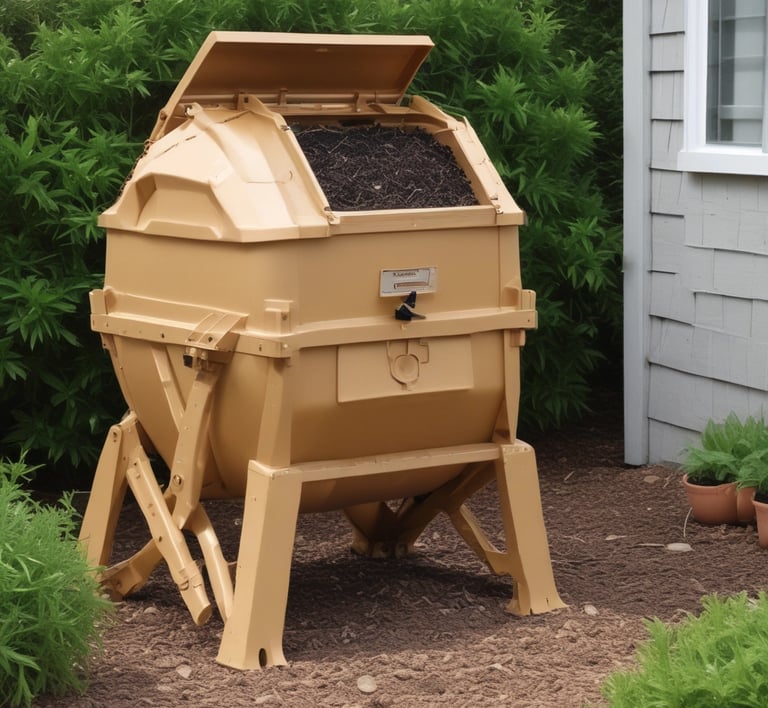

What Is a Compost Starter Kit & Why Home Gardeners Need It
What Is a Compost Starter Kit?
A compost starter kit is a package designed to help you begin composting with ease. It often includes:
A container or tumbler where food scraps, yard waste, and other compostables degrade.
Compost accelerator materials to speed decomposition (like beneficial microbes, compost starter granules, or “activators”).
Instructions or guidebooks tailored for beginners.
Sometimes stirring tools, filters, and secure lids.
Starter kits simplify the composting process, making it accessible to home gardeners who may not have the space or knowledge to build a compost heap from scratch.
Why Home Gardeners Benefit
Better Soil Quality: Compost improves soil structure, drainage, and nutrient availability, which is especially helpful for container gardening or raised beds.
Cost Savings: Instead of buying compost, fertilizer, or nutrient-rich soil, you produce your own at home for virtually no cost beyond the kit.
Waste Reduction: Composting turns kitchen scraps and yard waste into valuable soil amendment instead of sending them to the landfill.
Healthier Gardens: Plants grown in compost-rich soil are more resistant to pests and drought, and produce better yields.
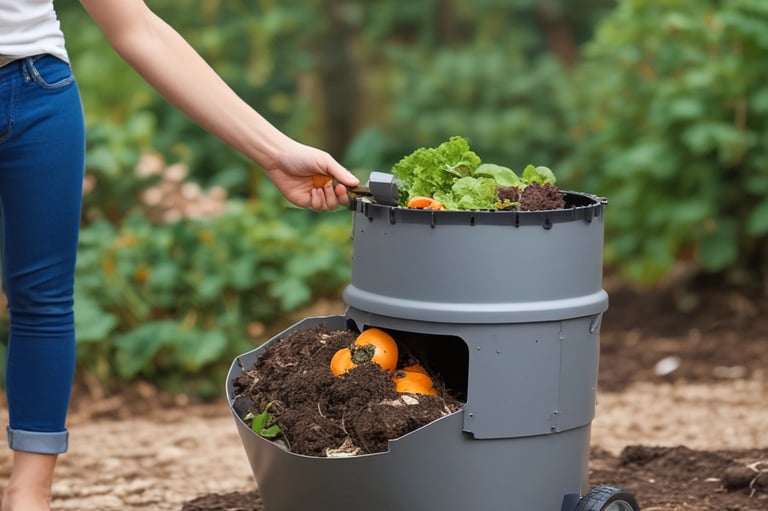

Key Features to Check in an Organic Compost Starter Kit
When shopping for an organic compost starter kit for home gardeners, look for the following features:
Capacity & Size
Larger tumblers allow more waste and faster composting but may need more space.
For apartment dwellers or small patios, small countertop bins or worm composters work better.
Compost Activators
Kits should include or allow you to add accelerators: microbes or granules that speed breakdown.
Ease of Use
Easy lid and turning mechanisms.
Instructions for beginners.
Odor control and ventilation.
Materials & Build Quality
Food-grade plastic or sturdy metal.
Durable bearings for rotating bins.
Organic Certification (if relevant)
Some kits advertise organic compost materials or organic activators—useful if you want “organic” branding.
How to Use a Compost Starter Kit: Step-by-Step
Set Up Your Kit
Place your tumbler or compost bin in a location that is accessible and aerated.
If included, add compost accelerators or activator granules as directed.
Add Brown & Green Materials
Greens: kitchen scraps, fruit/vegetable waste, coffee grounds, green leaves.
Browns: shredded paper, dried leaves, cardboard.
Aim for a ratio of roughly 3 parts browns to 1 part greens.
Moisture & Aeration
Compost should be damp (like a wrung-out sponge). Don’t over-water.
Turn or rotate your bin 2–3 times per week to introduce air and speed decomposition.
Monitor & Use
Over 4–8 weeks (depending on system and climate), compost will darken and reduce in volume.
Use finished compost to amend soil, top up containers, or refresh raised beds.
op 5 Organic Compost Starter Kits on Amazon
Here are recommended kits you can purchase on Amazon. Each has advantages and trade-offs. (Affiliate Note: honestgardener.com may earn commission on purchases.)
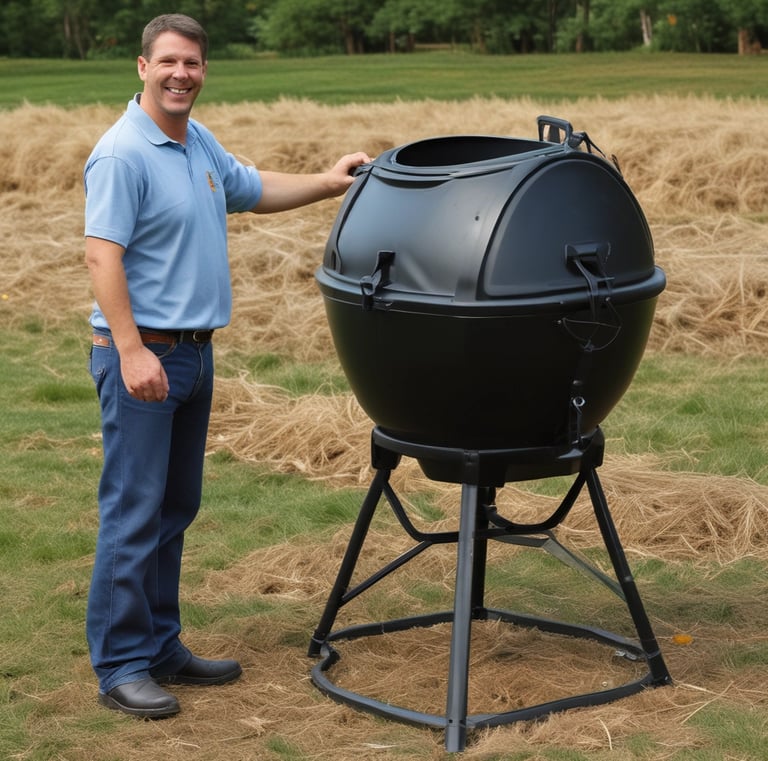

1. FCMP Outdoor IM4000 Tumbling Composter
Pros: Large 37 gallon capacity, dual chamber design (allows one chamber to cure while the other is in use), easy hand crank tumbling.
Cons: Bulky, needs outdoor space, empty when left in direct sun.
Best For: Gardeners with backyard space who want a fast compost turnover using large batches of green/brown materials.
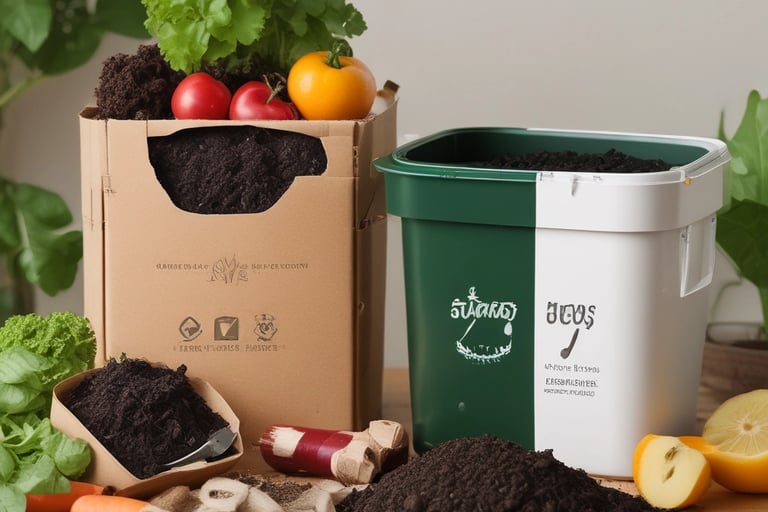

2. VIVOSUN Worm Composter Bin
Pros: Indoor worm composter; quiet and compact. Great for kitchen scraps, fruit peels. Produces high-quality worm castings.
Cons: Limited capacity, may require worm care.
Best For: Apartment gardeners who want rich compost useable for potted plants and vegetables.
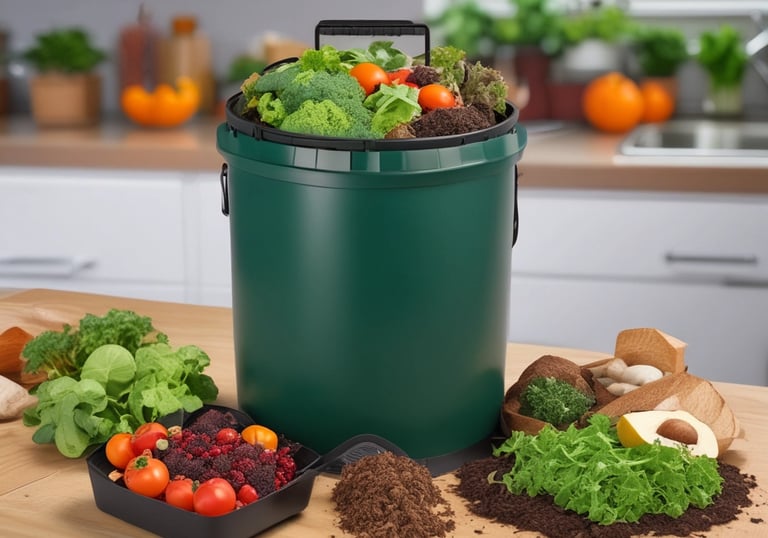

3. Nature’s Will Premium Composting Starter Kit
Pros: Comes as a bundle with activator granules, a stirring tool, and mesh lid. All-in-one package.
Cons: Starter supplies are small; you’ll need to replenish materials.
Best For: Beginners who want everything included and don’t want to purchase extras separately.
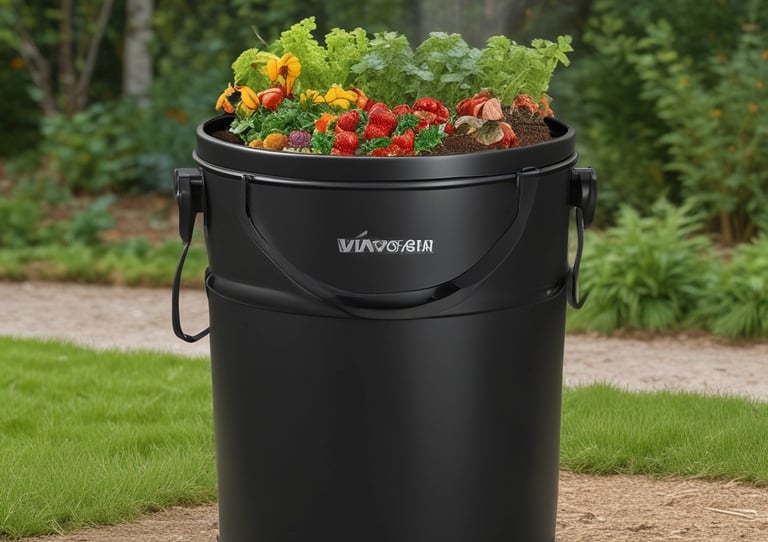

4. Epica Compost Tumbler Dual Chamber
Pros: Dual chamber for continual composting, lockable lid, easy rotation. Fast composting times.
Cons: Higher price, heavier.
Best For: Serious gardeners who compost regularly and want efficiency.
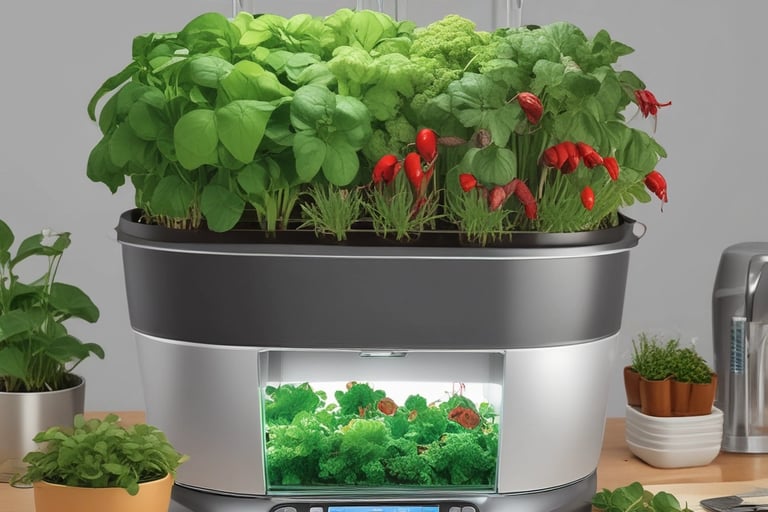

5. Stirling Maxwell AeroGarden Worm Factory 360
Pros: Indoor worm composter with stacking trays. Quiet operation.
Cons: Cost and vertical footprint.
Best For: Enthusiasts focused on high-quality worm castings for use in containers or gourmet soil setups.
Common Mistakes to Avoid
Using garden soil in compost: can introduce pests or disease.
Overfilling bins: restricts airflow.
Neglecting greens or browns ratio: leads to slow or smelly compost.
Leaving in direct sun: bins can overheat.
Not layering: use a mix of greens and browns to ensure decomposition.
Maintenance Tips to Get Best Results
Refresh your composter every 6 months: open chambers, stir materials, and add dry browns.
Harvest finished compost regularly and use it in your soil.
Store compost in buckets with lids to cure further before using.
Use it in container tomatoes, raised beds, or all your gardening zones.
Keep a small indoor container compost bucket near your kitchen to reduce waste and always feed your garden.
Conclusion
An organic compost starter kit for home gardeners is more than just a tool—it’s a pathway to healthier soil, better yields, and more sustainable gardening. By composting your waste, you reduce kitchen trash and feed your garden naturally. Choose the kit that fits your space and gardening style, and begin composting today.
Start small, stay consistent, and watch as your vegetables and plants flourish.
Ready to get started?
Check out the compost kits above on Amazon to begin your journey toward rich, organic compost that powers beautiful growth in your garden.🌱
Subscribe
Join us for tips and product reviews.
Contact
Affiliate disclaimer
info@honestgardener.com
© 2025. All rights reserved.
As an affiliate, we may earn a commission from qualifying purchases. We get commissions for purchases made through links on this website from Amazon and other third parties.
